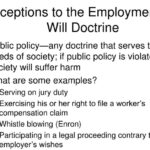A power of attorney (POA) is a legal document that grants one person the authority to act on behalf of another in financial or legal matters. This authority is defined by the scope outlined in the POA document, which can include tasks such as managing finances or making healthcare decisions.
This question often arises in estate planning discussions. Despite their broad powers, a POA cannot alter a will. This limitation is crucial for ensuring that your will accurately reflects your intentions and is properly managed.
What Is a Power of Attorney?
A power of attorney (POA) is a legal document that authorizes someone to act on behalf of another person in legal, financial, or medical matters. The individual granting the authority is known as the principal, while the person receiving the authority is called the agent or attorney-in-fact.
There are several types of POAs, including general, durable, and medical, each serving different purposes. A general POA provides broad powers, a durable POA remains in effect if the principal becomes incapacitated, and a medical POA allows the agent to make healthcare decisions.
Can a Power of Attorney Change a Will?
No, a power of attorney (POA) cannot change a will. The authority granted by a POA does not extend to modifying a will because such changes can only be made by the testator—the person who created the will. A POA’s powers are limited to managing financial and legal affairs or making healthcare decisions while the principal is alive.
Once the principal passes away, the POA’s authority ends, and only the executor named in the will or a court can handle estate matters. Understanding this limitation helps ensure that your will remains under your control and is changed only by you or through legal channels.
Steps to Take If You Need to Change a Will
If you need to change a will, follow these essential steps to ensure the modifications are legally valid and reflect your current wishes.
Firstly, consult a legal professional who specializes in estate planning. An attorney can provide guidance on the correct procedures and ensure your changes comply with state laws. Next, you have two main options for updating your will:
- Draft a Codicil: This is a legal document that amends an existing will. It must be signed and witnessed according to the legal requirements of your state.
- Create a New Will: If the changes are substantial, drafting a new will might be more practical. Make sure the new will explicitly revoke the previous one to avoid any confusion.
Ensure all documents are properly signed and witnessed to avoid potential disputes. Store the updated will in a safe place and inform relevant parties, such as your executor and beneficiaries, about the changes. Regularly reviewing and updating your will ensures it accurately reflects your current intentions and circumstances.
Common Misconceptions About POA and Wills
the roles of a power of attorney (POA) and a will is crucial in estate planning. However, several misconceptions often arise.
POA Can Change a Will
One major myth is that a POA can alter a will. In reality, a power of attorney cannot modify a will. Only the testator, the person who created the will, can make changes to it. The authority granted by a POA ends upon the testator’s death, leaving will modifications solely to the testator or their executor.
POA Can Make Estate Decisions After Death
Another misconception is that a POA can manage estate affairs after the testator’s death. This is incorrect, as the POA’s authority terminates when the principal dies. Estate management then falls to the executor designated in the will.
POA and Will Serve the Same Purpose
People sometimes confuse the roles of a POA and a will. A POA deals with decisions and management while the principal is alive, whereas a will outlines how assets should be distributed after death. Understanding these differences is essential for effective estate planning.
Types of Powers Granted
A power of attorney (POA) can grant various types of authority, depending on the needs and preferences of the principal. Understanding these types can help in selecting the appropriate POA for your situation.
General Power of Attorney
A general power of attorney provides broad authority to the agent to handle a wide range of tasks on behalf of the principal. This includes managing financial transactions, handling real estate matters, and making business decisions. It is useful for general oversight but becomes invalid if the principal becomes incapacitated.
Durable Power of Attorney
A durable power of attorney remains in effect even if the principal becomes incapacitated. This ensures that the agent can continue to manage the principal’s affairs if they are unable to do so themselves. It is especially important for long-term planning and situations involving serious health issues.
Medical Power of Attorney
A medical power of attorney authorizes the agent to make healthcare decisions on behalf of the principal when they are unable to make these decisions themselves. This includes choices about medical treatments, procedures, and end-of-life care.
Limited Power of Attorney
A limited power of attorney grants authority only for specific tasks or periods. It is ideal for handling particular transactions or legal matters without extending broader powers.
Limits on Agents
Limits on Agents refer to the restrictions placed on the authority granted to an agent under a power of attorney (POA). While a POA allows an agent to act on behalf of the principal, these powers are not unlimited. Agents must adhere to the scope outlined in the POA document and act in the principal’s best interests. Common limitations include:
- No Authority to Alter Wills: Agents cannot change or create a will.
- Restricted Financial Decisions: Agents can only make financial decisions within the parameters set by the POA.
- Legal Boundaries: Agents must operate within legal and ethical boundaries, avoiding conflicts of interest or self-dealing.
ALSO READ : Same Day Pre Settlement Loans
Power of Attorney Cannot Change a Will
A power of attorney (POA) does not have the authority to change a will. The POA’s role is limited to managing the principal’s affairs while they are alive, such as handling financial transactions or making medical decisions. Any modifications to a will must be made by the testator, who is the only person with the legal right to alter their will. The authority of a POA ends upon the testator’s death, at which point the estate is managed by the executor designated in the will.
Power of Attorney Can Change an Estate
While a POA cannot alter a will, it can affect the estate during the principal’s lifetime. The agent can manage financial assets, pay bills, and make investment decisions within the limits of the POA. This authority can significantly influence the estate’s overall financial health before it is distributed according to the will.
How to Prevent Abuse from an Agent
To prevent abuse by a POA agent, implement the following safeguards:
- Clearly Define Authority: Specify the limits and scope of the agent’s powers in the POA document.
- Regular Monitoring: Periodically review the agent’s actions and financial transactions.
- Legal Oversight: Include provisions for regular audits or require the agent to provide detailed reports.
These measures help ensure the agent acts in the principal’s best interests and within the legal boundaries outlined in the POA.
CONCLUSION :
The limitations of a power of attorney and its distinction from a will is crucial for effective estate planning. While a POA cannot change a will, it plays a significant role in managing an estate during the principal’s lifetime. Ensuring clear boundaries and monitoring the agent’s actions can help prevent abuse. By recognizing these differences and implementing safeguards, you can better protect your estate and ensure that your wishes are carried out as intended.
People also ask
What three decisions cannot be made by a legal power of attorney?
A POA cannot change a will, make decisions after the principal’s death, or alter estate plans.
Can a power of attorney trump a Will?
No, a POA cannot override or change a will; only the testator can modify their will.
Can a power of attorney change a beneficiary on an IRA?
No, a POA cannot change IRA beneficiaries; this decision must be made directly by the account holder.
Can a power of attorney transfer money to themselves in Canada?
Generally, a POA cannot transfer money to themselves unless explicitly authorized in the POA document and compliant with legal and ethical standards.







